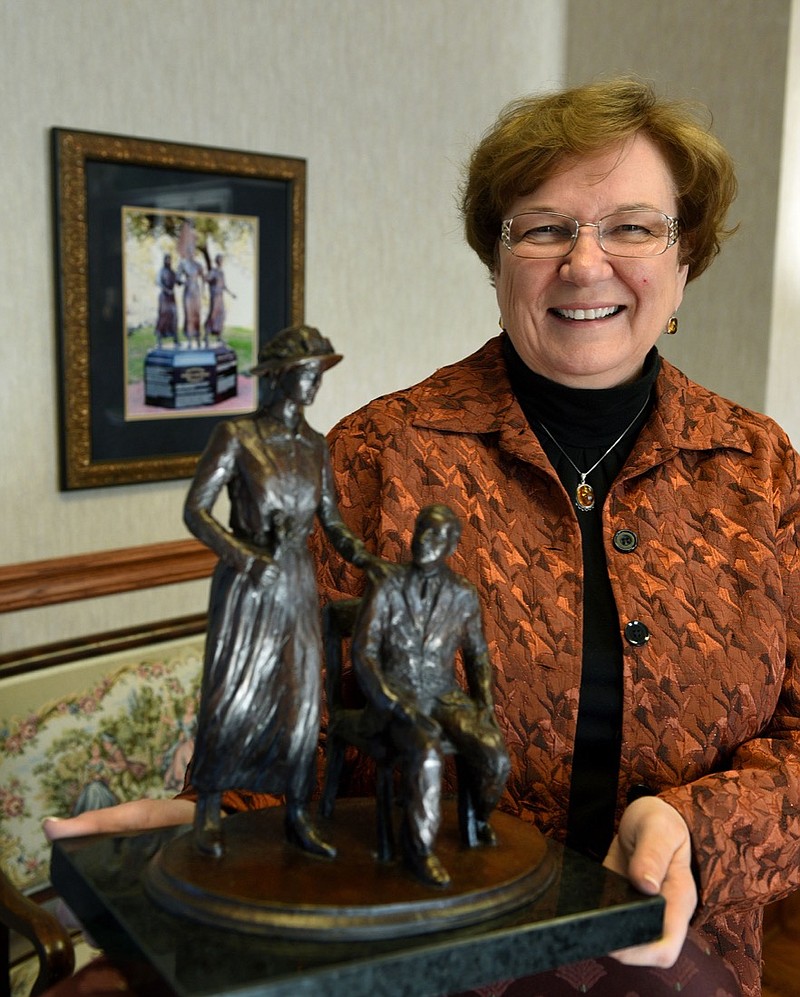If you heard that last week marked the 100th anniversary of women getting the right to vote in the United States, you heard incomplete information.
Indeed, a constitutional amendment resolution to that effect 44 years in the making was passed by the U.S. Senate on June 4, 1919, but three-fourths of the 48 state legislatures still had to ratify the amendment.
More on the ratification effort in a moment.
Officially, the Senate passed the resolution 56-25, getting two more votes than necessary. The U.S. House had passed the bill roughly two weeks earlier 304-89. President Woodrow Wilson's signature was said to be unnecessary but was expected.
The resolution had been drafted by Susan B. Anthony in 1875 and introduced by Sen. Aaron Sargent, R-California, in 1878.
At passage, Tennessee Democrat Sen. Kenneth McKellar voted against the measure. Tennessee Democrat Sen. John Shields was absent for the vote but also was against the measure.
One hundred years later, more women vote than men. And women, gradually but now more speedily, are being elected in larger numbers to public offices.
We can't imagine today that half the population could be excluded from having a say in local, state and national governance, but 100 years ago this week they still did.
The suffrage measure had been voted down in the Senate in 1887, 1914 (by 11 votes), 1918 (by two votes) and earlier in 1919 (by one vote). The House had rejected it in 1915 (by 78 votes) and 1918 (by one vote).
Two Democrats tried at the last minute to alter the simple amendment, which said "the right of citizens of the United States to vote shall not be denied or abridged by the United States or by any state on account of sex" and "Congress shall have power, by appropriate legislation, to enforce the provisions of this article."
Sen. Oscar Underwood of Alabama proposed the article be put to popular state conventions instead of state legislatures, and Sen. Edward James Gay of Louisiana suggested enforcement of the amendment be by the states instead of by the federal government. A third Democrat wanted to revise Underwood's amendment by fixing the methods of calling the popular ratification conventions.
Another Southerner, Sen. Ellison D. Smith, D-South Carolina, called the measure a "Pandora's box of evil." And since the rights of blacks to vote in the South were frequently denied, he said passage would "be a vote to turn loose on the South another era of race trouble."
The Tennessee House, almost two months earlier and getting ahead of its national counterparts, had passed a bill 54-32 providing for women's suffrage in presidential and municipal elections. And the Volunteer State, according to the National Constitution Center, would be the only Southern state which gave women the right to vote for president before the 19th Amendment was ratified.
The state suffrage bill had been sponsored by Rep. L.D. Miller of Hamilton County, who according to the Chattanooga Daily Times, "surprised his friends by his oratory," which was said to be "along the usual lines presented in support of woman suffrage."
Just as in Washington, though, there was opposition in Nashville.
Acknowledging to the women-filled gallery that "I approach this subject with fear," Rep. Hauk of Sullivan County said he didn't believe the suffrage bill was wanted by the women in Tennessee and that it would never pass if it could be subjected to a secret vote.
On the other hand, House Speaker Seth Walker, a former Chattanoogan, said, "The original 13 colonies fought England because of taxation without representation. The same principle is involved in the suffrage issue. The women of Tennessee are taxed and they are amenable to our laws. I declare to you that this is not right, and that they should have a voice in our government."
Ratification of the constitutional amendment took more than a year, and Tennessee - as is often cited - was the 36th and deciding state to ratify it on Aug. 18, 1920. However, parts of the story about 24-year-old McMinn County Rep. Harry T. Burn casting the deciding vote out of loyalty to his mother and later being chased out of a third-floor window and onto a ledge at the Capitol building by opponents are not quite true, his great-grandnephew said in an address to the Washington County Federated Republican Women last week.
Tyler Boyd, a social studies teacher in Lenoir City Schools, said Burn's mother did send him a letter suggesting he vote for suffrage but did not have to browbeat him. He already had supported suffrage but was told by colleagues that McMinn County voters were against it. When he voted, Boyd said, according to the Johnson City Press, he did so exercising his own conscience.
And, though legislative leaders had asked the House sergeant at arms to keep an eye on Burn for his own protection, he did sneak out of the Capitol to get away from the fanfare of the vote, Boyd said.
So, 100 years ago, with the congressional vote, women had passed one hurdle. But one more significant was yet to come. And Tennesseans can be proud of the role our state played in that.
